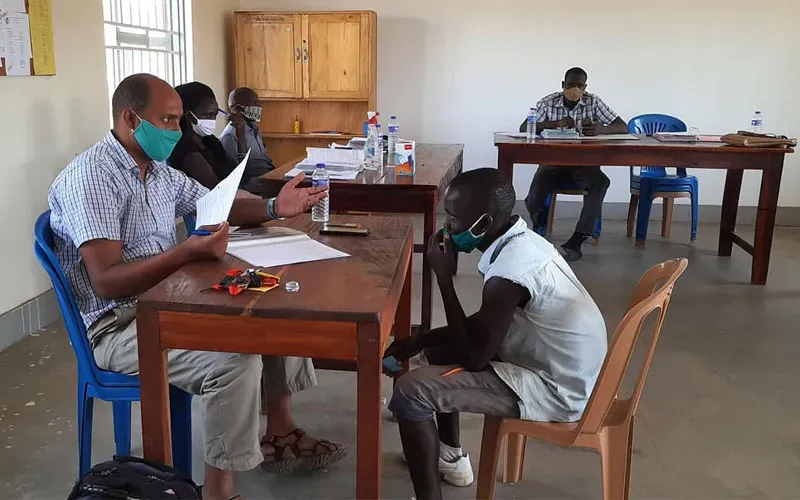The refugees’ Chaplain in Uganda’s Gulu Archdiocese notes that in the beginning years to 2019, Salesians administered Sacraments of Initiation, especially Baptism, to hundreds.
“People came to receive sacraments, as they missed them for several years,” he says, and adds, “The Archbishop recognized our mission, and as a full-fledged chaplaincy, we are permitted to celebrate all the sacraments with due authority and to keep records. This is a big recognition for our ministry.”
Fr. Arasu says that the Catholic Archbishop of Gulu last administered the Sacrament of Confirmation at the Palabek Refugee Services in 2019, adding, “We need to organize for another as we have failed to do it during Corona years.”
“Several hundreds of children and teenagers were given First Holy Communion and a few couples were helped to receive matrimony. Anointing of the Sick and other sacraments are in regular practice,” he says.
Describing the suffering that came with COVID-19, especially among Uganda’s vulnerable populations, Fr. Arasu says, “People suffered due to hunger and lack of other basic services… Closure of schools for nearly two years created untold miseries among children and the youth. People suffered stress and many went through trauma, which also led to suicides in large numbers.”
(Story continues below)
He says that while most Non-Governmental Organizations left Palabek Refugee Settlement, SDB members stayed among the refugees and resorted to Home-Eucharist, Rosary recitations, and Celebration of the Word of God in the homes and small groups.
“For every celebration, at least 15 people gathered and the celebration of the Sacrament of the Eucharist and Word of God was very intense. People picked interest in these celebrations and they were proud to host them in their courtyard,” Fr. Arasu says.
“The Home-Eucharist celebrations helped to bring back many adults who left the Church a long time ago and it was a moment of re-evangelization and discovering of the beauty of Sacraments in a face-to-face experience” he says in his report shared with ACI Africa February 7.
The Salesian Priest adds in reference to Home-Eucharist celebrations, “We have celebrated not less than 50 such Masses. Often, they were also accompanied by Marian devotion, house blessing and prayer for the sick. They were beautiful moments of offering psychosocial support.”
Agnes Aineah is a Kenyan journalist with a background in digital and newspaper reporting. She holds a Master of Arts in Digital Journalism from the Aga Khan University, Graduate School of Media and Communications and a Bachelor's Degree in Linguistics, Media and Communications from Kenya's Moi University. Agnes currently serves as a journalist for ACI Africa.








